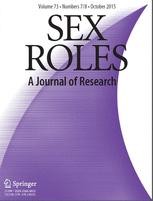Men who sexually harass subordinates fear being judged as incompetent
New research shows that sexual harassment is related to feeling threatened and wanting to maintain one’s social status
Heidelberg | New York, 11 July 2018
 The numerous high-profile men who have recently been accused of sexual harassment may not have been simply exercising their power. Instead their behaviour could be related to feeling insecure and believing that others find them ill-suited to or undeserving of their dominant position. This is according to new research in Springer’s journal Sex Roles, which was led by Leah Halper of Ohio University and The Ohio State University, and Kimberly Rios, also of Ohio University in the US. The findings indicate that sexual harassment is not always about sexual gratification; sometimes it is about trying to look more competent and in control in the eyes of others.
The numerous high-profile men who have recently been accused of sexual harassment may not have been simply exercising their power. Instead their behaviour could be related to feeling insecure and believing that others find them ill-suited to or undeserving of their dominant position. This is according to new research in Springer’s journal Sex Roles, which was led by Leah Halper of Ohio University and The Ohio State University, and Kimberly Rios, also of Ohio University in the US. The findings indicate that sexual harassment is not always about sexual gratification; sometimes it is about trying to look more competent and in control in the eyes of others.
Most studies about sexual harassment have focused on the characteristics of victims, and how they experience and deal with the harassment. Some work that has been done on the perpetrators has shown that men in powerful positions are more inclined to sexually harass others.
However, not all men at the top are harassers. In this study, Halper and Rios set out to understand whether there are specific aspects of a man’s disposition that make him more prone to misusing his power to sexually harass others, which can include attempts to gain sexual favours.
The researchers conducted three different studies using a combination of adults and college students. In one study, 273 men had to imagine themselves in the powerful position of an interviewer who had to consider a female job applicant or that they were in a position of power over a female employee. These men were asked to indicate whether they would ask for sexual favours in return for securing her a job, a promotion, or some other job-related benefit. Participants also had to answer questions that measured their self-esteem and how narcissistic they were, as well as how important they perceived others’ opinion and criticism of them.
The outcomes of the study support the idea that powerful men are especially inclined to sexually harass others when they worry that they will be perceived as incompetent. Having such a fear was consistently found to predict sexual harassment among men in powerful positions. The same did not hold true for women. These findings corroborate the theory that sexual harassment is in part a byproduct of a person feeling threatened and wanting to maintain his social status.
“Fearing that others will perceive you as incompetent is a better predictor of sexual harassment than your self-perceived incompetence,” explains Halper.
“The findings also suggest that men do not necessarily sexually harass women because they seek sexual gratification, but rather because their insecurity about being perceived as incompetent prompts them to want to undermine a woman’s position in the social hierarchy,” adds Rios.
Halper and Rios believe that sexual harassment in the workplace should be examined more broadly than just being about soliciting sexual favours. They say companies should also work towards creating cultures that do not foster feelings of insecurity.
Reference: Halper, L.R. & Rios, K. (2018). Feeling Powerful but Incompetent: Fear of Negative Evaluation Predicts Men’s Sexual Harassment of Subordinates, Sex Roles DOI: 10.1007/s11199-018-0938-0
Further Information
About the journal Sex Roles
Services for Journalists
The full-text article is available to journalists on request.
Contact
Erica Lorenzoni | Springer Nature | Communications
tel +49 6221 487 8414 | erica.lorenzoni@springer.com
